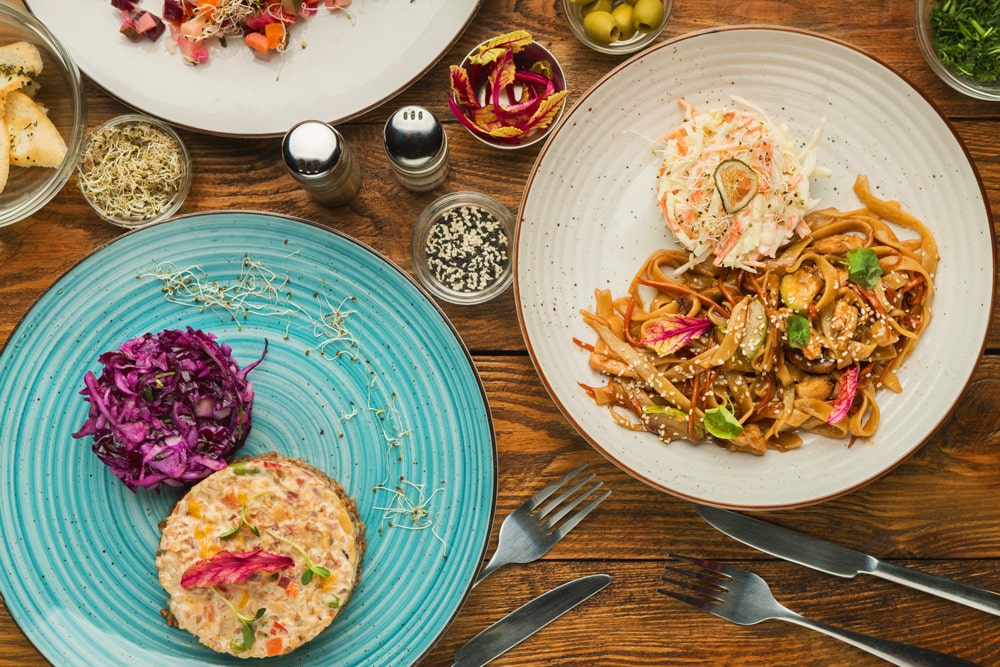Is healthy food really the order of the day for independent restaurants?
Somewhere in the world, a new branch of Domino’s Pizza opened every seven hours in 2016.
Healthy eating – from the increasing popularity of ‘superfoods’ and health snacks to the rise of veganism and the quantified self-movement – has been a clear, important trend for years.
We’ve talked about how promoting healthy eating can be a powerful way of building your business, particularly when it’s connected with genuine community engagement. And we’ve discussed the fact that 65% of consumers report proactively trying to lead a healthy lifestyle.
But is it as simple as all that?
You could be forgiven for looking at this ‘health trend’ and scoffing: surely, people are getting less healthy, not more.
It’s true: the average person eats around 500 more calories per day than they did in the 1960s. ‘Poor diet’ was the cause of 12 million deaths in 2015 – nearly twice as much as smoking
In 2016, more than 600 children in the UK were registered as suffering from type-2 diabetes; in 2000, not a single child had the condition. And Boris Johnston recently announced a ‘war’ on obesity, in light of the increasing evidence that weight problems make people far more vulnerable to Coronavirus.
Famine and starvation were the largest threat to human life throughout most of history; now, half of the world’s population is expected to be overweight by 2030.
The reality is, people are eating more healthy food than before; they’re just eating more unhealthy food, too.
Diets across the world have changed in dramatic, unprecedented ways in the last few decades, and heath food companies pushing the narrative that people have become universally more health conscious dramatically oversimplify these changes.
For one thing, there is no reason to assume we all agree what ‘healthy’ constitutes: research indicates that consumers associate higher prices with health – that is, they assume more expensive food is healthy without actually inspecting what’s in it.
Anyone who’s lived more than a decade or two will have noticed how frequently health advice changes. So it makes sense that many consumers are sceptical of businesses claiming their food is ‘healthy’: nobody likes to feel judged for what they eat.
So why do we still believe moving towards a healthier, more sustainable menu is the right move for small restaurants?
Well, there are three fundamental reasons.

1. Coronavirus is making us more health-conscious
This is a time of heightened health-consciousness, and consumers across the country will surely come out of it with a renewed sense of cautiousness about how and what they consume; many of us have been comfort eating hard during these times, and there’ll likely be a big kickback towards dieting and focusing on organic, healthy food.
But while consumers may want to change the way they eat, it’s always more difficult than it seems.
By providing healthy options, restaurants can become a way for people to force themselves to eat better – rather than an indulgence, eating out can become virtuous.

2. Healthy food creates a halo effect
Nobody wants to feel unhealthy, regardless of what they’re eating. You’re not likely to see restaurants advertising how excessively calorific their food is – if anything, they want to put a positive, health-centric spin on whatever they do.
Even restaurants as obviously unhealthy as McDonalds benefit from healthy options: they probably don’t make much selling salads, but they do make themselves more palatable to health-conscious people.
Nearly 40% of consumers say they are more inclined to visit restaurants that provide healthy options—even if that’s not what they order.
Simply having more healthy options gives your restaurant an air of positivity– as if just being nearby to a quinoa salad were beneficial to your health.

3. Values matter more than ever in business
The job of a business is not simply to observe behaviour and find a way to get in on existing trends; even small businesses, when they do things right, have the capacity to alter people’s behaviour in powerful ways.
While there is room for restaurants to engage meaningfully in the community and stand for something socially, the most straightforward way to demonstrate that your business is driven by real values is to help encourage people to eat better.
That doesn’t mean being preachy – it means actively helping your customers understand what goes into food, what they need from food and giving them the opportunity to eat in a new, better way.
Ultimately, it means really caring about the people who support you; they will care about you in return.